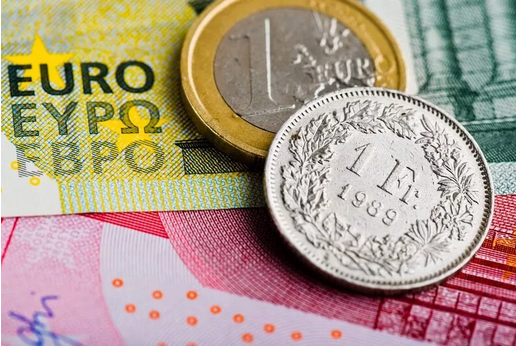Yesterday, the Swiss franc reached its highest level against the euro in two years. The EUR/CHF exchange rate reached 1.097 on 24 July 2019, a rate not seen since early 2017. Source: Valeriya Potapova - Click to enlarge Upward pressure on the franc is partly being driven by expectations of interest rate cuts by eurozone and US central banks. In addition, the franc is considered a safe haven currency and typically rises when global risk perceptions rise. The Swiss National Bank (SNB) has limited options for stemming the franc’s rise. Interest rates on sight deposit account balances are already negative, although a more negative rate is possible. The last time the bank intervened in the market – it sold francs
Topics:
Investec considers the following as important: 1.) CHF, 1) SNB and CHF, Business & Economy, Business & Economy, Editor's Choice, Featured, newsletter, Personal finance, Swiss Franc
This could be interesting, too:
Investec writes The global brands artificially inflating their prices on Swiss versions of their websites
Investec writes Swiss car insurance premiums going up in 2025
Investec writes The Swiss houses that must be demolished
Investec writes Swiss rent cuts possible following fall in reference rate
Yesterday, the Swiss franc reached its highest level against the euro in two years. The EUR/CHF exchange rate reached 1.097 on 24 July 2019, a rate not seen since early 2017.

Source: Valeriya Potapova - Click to enlarge
Upward pressure on the franc is partly being driven by expectations of interest rate cuts by eurozone and US central banks. In addition, the franc is considered a safe haven currency and typically rises when global risk perceptions rise.
The Swiss National Bank (SNB) has limited options for stemming the franc’s rise. Interest rates on sight deposit account balances are already negative, although a more negative rate is possible.
The last time the bank intervened in the market – it sold francs and bought other assets – it was forced to retreat with its tail between its legs. In a surprise move, on 15 February 2015, the SNB announced that it would stop managing the Swiss franc to an exchange rate of CHF 1.20 to 1.00 Euro. Briefly, a franc was worth more than a euro,as markets responded to the news.
In addition, SNB efforts to manage the Swiss franc have been criticised. Currency manipulation has become hot politics, particularly in the US where the president has been highly vocal on the subject. In 2017, the Economist magazine ranked Switzerland the world’s worst currency manipulator.
The SNB next meets in September 2019.
Tags: Business & Economy,Editor's Choice,Featured,newsletter,Personal finance,Swiss Franc
